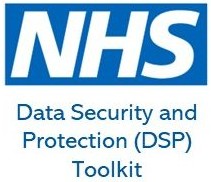
I started at Involve in 2012 as an Account Manager on the Involve Health sales team. After graduating from Leeds Beckett University with a Bsc (hons) degree, I was self-employed running a clinic within a complementary therapy centre, practicing acupuncture, massage, and other therapies. I was interested in the link between digital technology and healthcare and how it could improve speed and ease of access to care for patients.
My role with the Involve Health sales team taught me a lot about the wide range of technologies, solutions and services that Involve can provide into the healthcare system, including working with hospitals and GP practices.
At this time, the partnership between Airedale NHS Foundation Trust and Involve was in its infancy and had been focussed on providing secure remote prison healthcare services. I also worked on a large contract that was won for a Yorkshire and Humber stroke service, and a contract to provide digital capabilities for the northern burns care network.
When the concept came about for Involve and Airedale to provide safe and effective remote healthcare for care homes, I was asked to support the deployment. I visited each of the first care homes to receive the service and helped set it up (internet has come a long way in the last 10 years!) and give training to the care home staff, teaching them how the service could benefit the residents they care for, and how to use it.
The care home service quickly grew once it was proved to be effective and I visited lots of care homes across England. I worked with the teams at Involve and Airedale to create processes and project plans for the care home service, to help the deployment process become more efficient. Over the following year or so, the Immedicare joint venture was formalised and I was given a role solely focussed on Immedicare.
My role at Immedicare is currently Contract Performance Manager. I am focussed on contract retention and growth, responsible for working with commissioning partners, past the point of initial deployment, ensuring key objectives are delivered and supporting recommissioning strategy into the next contract term period. It is rewarding working for a service that aligns with NHS priorities to support care home residents and the elderly, such as the NHS long term plan (Ageing Well) and the Enhanced Health in Care Homes framework.
I have seen Immedicare grow from its conception in 2013 to where it is today. Whilst the heart of what we do hasn’t changed, we have improved the Immedicare service through dedicating time and resource to developing the clinical service, technical platform, relationship team, business intelligence, marketing, to name but a few teams! We also moved from our first Digital Care Hub in Airedale General Hospital to where we are now, and are soon to have a second move to an even bigger space to accommodate the growing service.
Over the years I have been with Immedicare I have seen the use of video conferencing technology progress from being a new and innovative way of delivering clinical care and support, to something that is readily accessible and accepted by care staff and residents. At the touch of a button, our team can be accessed 24/7 for clinical assessment, advice, guidance and support. What excites me and keeps me motivated is that the landscape for health tech and solutions like Immedicare is always changing and we are continually developing and improving our service to meet these changes, rather than being a static entity.
Immedicare makes a difference for our customers who are predominantly NHS ICBs (integrated care boards) by supporting their local strategies to improve access to care and outcomes for care home residents, along with helping care workers to have a streamlined approach to new/acute/on the day concerns about someone they are caring for. Immedicare also aims to support effective local pathways, enabling early intervention for care home residents, especially those at increased risk of attendance at the emergency department or acute admission to hospital, and to reduce ambulance callouts/conveyance to the emergency department/unplanned hospital admissions, as well as helping manage the increasing demand for primary care support, reducing the number of urgent same day GP visit requests.




